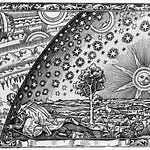A nine-minute radio sermonette.
I think I may be doing a bunch of these. Subscribe to get all of them!
Possibly I’ll create one every day or two! And maybe you don’t want that many emails? So I could post these as Substack Notes, and collect them into emailed posts, sent once a week maximum?
What do you think?
Transcript
In the 1970s, researchers in cognitive developmental psychology discovered something that may have great practical power; and is underappreciated, I think.
The researchers applied Jean Piaget’s four-stage model of childhood cognitive development to college students and other adults. The fourth stage in Piaget’s theory is formal rationality, and the researchers found, first, that many adults are not able to reliably think systematically, rationally, or formally.
This may not come as a surprise to you, but it did to them at the time! It contradicted Piaget’s beliefs.
More importantly, the researchers found that some adults, after mastering rationality, went on to develop a further form of cognition, which they called post-formal; or meta-systematic; or stage five.1
Stage five is less about problem solving, which is the essence of stage four, than about problem finding, choosing problems, and formulating them. And stage five often applies multiple or unexpected forms of thought, when in complex, nebulous situations. By contrast, stage four tends to unthinkingly apply some supposedly-correct rational method, disregarding contextual clues that some other approach might work better.
I’ve written quite a lot about this, because I think it’s critical now for cultural and social progress, as well as personal and intellectual development.
However, while I said that stage five seems underappreciated to me, it may also be over-appreciated, in a sense, by some people. There is a tendency to sacralize it; to treat it almost religiously. This is a pretty common misunderstanding!
Achieving stage five does not make you special in any way. It’s not sainthood, enlightenment, ultimate wisdom, or any other sort of perfection.
Making stage five sound special is misleading and unhelpful, because it puts it out of reach. It suggests that only super-duper-special people could ever be that way. But, in fact, it’s an unusual but feasible way of being.
You don’t need to be something special to make the transition from stage four to stage five. You don’t need any expectation or intention of becoming something special. Those are obstacles, actually! Because specialness is a metaphysical idea. So, thinking that stage five is something ultimate leads you to try to reach it through spiritual, philosophical, metaphysical means, almost by magic, where you think that it’s going to descend on you out of the sky. And this doesn’t work!
You can work towards stage five in a practical way. It’s not something that just happens to you because you’ve gotten to be sufficiently meritorious. You actually have to do the work. And doing that unlocks new capabilities, even before you can consistently inhabit the way of being. Before you’re “at” stage five, you can begin to do the thing.
So, I wonder where this wrong idea, that this is a special, almost religious achievement— where does this idea come from? It seems to be a natural human thing to harbor a hope for ultimacy: for a possibility that we can transcend the mundane world; that we can become special, elevated above this ordinary place. And making stage five special, sacred in a secular sense, seems to be a manifestation of that hope.
To be fair, there are genuine similarities between stage five and some Buddhist conceptions of enlightenment. Stage five does involve a partial melting of the imaginary boundary between yourself and everything else. You realize that you are in constant interaction with your circumstances, and that you and your environment are constantly reshaping each other, so your experience of self and time and space expands.
This is not, however, an experience of not having any sort of self. It’s rather that you encompass a broader and more precise vision of the diverse details of the world.
You may come to find that you have different selves in different situations. And at first this may seem frightening, fake alienating, or confusing, like which is the “real me.”
But, with growing confidence, you find that you can step into dissimilar, unfamiliar contexts, and become whatever they need. This fluidity of self is always a work in progress. It’s never perfected, but it’s a capacity that you can develop increasingly.
I think that to be useful, or even meaningful, developmental theory needs to be based in detailed, realistic observation of actual people engaged in actual activities. For stages one through four, the Piagetian program, that’s been done extensively. But when it comes to stage five, there’s much less of that than I would like. And this makes me quite uncomfortable in talking about it, because we are really relying to a significant extent on personal experience and anecdata.
Sometimes when people recognize that stage five is a merely mundane capability, they want it to be metaphysical. And so they posit some stage six, or even a hierarchy of further stages, as leading to a metaphysical perfection of what it means to be human, and to transcend being human even, maybe. This gives rise to metaphysical speculation, rather than empirical investigation. And there’s a lot of nonsense in the adult developmental literature as a consequence.
That said, there are quite a few down-to-earth, practical, empirical studies of stage five in the academic literature. Less than I would like, but we can draw understanding and inspiration from those that have been done.
The Wikipedia “Postformal thought” article is a good summary, and cites additional, more detailed reviews of the academic literature.













Share this post